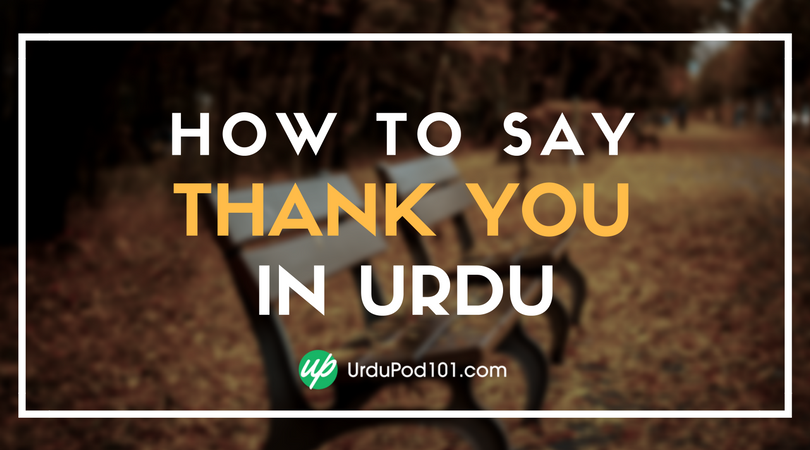
So, you’ve been learning Urdu for quite a while now.
You can hold basic conversations in Urdu with relative ease and navigate most daily situations while in Pakistan.
But imagine you’re talking with a friend or colleague one day. Everything is going just fine until they employ a word you’ve never heard before—you ask what it means, but your interlocutor is struggling to give an apt definition.
This is one of many untranslatable Urdu words you’re bound to hear if you spend any amount of time in Pakistan.
Every language has its own set of words and phrases that don’t translate well into other languages, and Urdu is no exception. Because using these words is second nature to native speakers, it’s imperative that you make the effort to learn them yourself! Knowing what these words mean and how to use them will allow you to embellish your expressions, sound more like a native Urdu speaker, and gain the confidence you need to handle a greater variety of situations.
In this article, you’ll learn some frequently used untranslatable Urdu words and phrases you can add to your mental vocabulary bank. Having these unique words up your sleeve will truly distinguish you from other foreign Urdu speakers and help you win favor among the locals!

Start with a bonus, and download the Must-Know Beginner Vocabulary PDF for FREE! (Logged-In Member Only)
 Table of Contents
Table of Contents
- کھچا کھچ (khacha khach)
- صفاچٹ (safachat)
- سائیں سائیں (saayain saayain)
- تِگڑم (tigram)
- جُگاڑ (jugaar)
- چُھواچُھو (chuwachu)
- چھن چھن (chun chun)
- چُھومنتر (choomantar)
- ابے (abay)
- اوئی (ooe)
- تھو تھو (thoo thoo)
- Conclusion
1. کھچا کھچ (khacha khach)
Literal Translation: Full
Meaning: Used to indicate an abundance of something
Example Situation: If a place is overflowing with something, then one might say that it’s کھچا کھچ (khacha khach). This phrase is used to stress an excess of items or people, though it may sometimes be used to emphasize an excessive presence.
Usage in a Sentence:
a.
سٹیڈیم تماشائیوں سے کھچا کھچ بھرا ہوا تھا۔
(Stadium tamashayion say khacha khach bhara hua tha.)
The stadium was full of the audience.
b.
اُس کا گھر سامان سے کھچا کھچ بھرا پڑا تھا۔
(Uss ka ghar samaan say khacha khach bhara para tha.)
His house overflowed with the luggage.

2. صفاچٹ (safachat)
Literal Translation: To shave thoroughly
Meaning: To show that something is completely finished or ended
Example Situation: This word might be used, for example, if someone has totally cleaned their plate during a meal. It’s also used to describe someone who has shaved his head or face down to the skin; sometimes, it’s also used to mock someone with a shaved head.
Usage in a Sentence:
a.
اُس نے تھالی کو صفاچٹ کر دیا۔
(Uss nay thaali ko safachat ker dia.)
He cleaned the plate fully.
b.
نائی نے اُس کے سر کے بالوں کو صفاچٹ کر دیا۔
(Nai nay uss kay sur kay baalon ko safachat ker dia.)
The barber shaved his head neat and clean.

3. سائیں سائیں (saayain saayain)
Literal Translation: –
Meaning: The sound of blowing wind
Example Situation: This onomatopoeia mimics the sound of the wind blowing, often in reference to a place that is completely isolated. It’s often used to depict the melancholy or loneliness of such a place or to describe the sound of the wind in a more general sense.
Usage in a Sentence:
a.
شہر کیوں سائیں سائیں کرتا ہے؟
(Shehar kyun saayain saayain kerta hai?)
Why is the city lonely?
b.
تیز ہوا کی وجہ سے درختوں کے پتے سائیں سائیں کر رہے تھے۔
(Taiz hawa ki wajah say darkahton kay patay saayain saayain ker rahay thay.)
The leaves of the trees produced an airy sound because of the strong wind.
4. تِگڑم (tigram)
Literal Translation: Cleverness
Meaning: Cunningness or fraudulence
Example Situation: This untranslatable Urdu word is used when someone tries to deceive others.
Usage in a Sentence:
a.
میرا دوست دوکاندار کی تگڑم بازی سے فریب میں آ گیا۔
(Mera dost dukandaar ki tigram baazi say faraib mein aa gaya.)
My friend was entrapped by the cunningness of the shopkeeper.
b.
جب کام سیدھے طریقے سے نہ ہوا تو میں نے اپنی تگڑم لڑانے کا سوچا۔
(Jab kaam seedhay tareeqay say nah hua tou mei nay apni tigram laranay ka socha.)
When it became impossible through proper channels, then I thought to use my cunningness.

5. جُگاڑ (jugaar)
Literal Translation: A substitute
Meaning: To find a “shortcut” solution or substitution at a very low price
Example Situation: This word most often refers to substituting a high-budget item with an extremely low-budget one. It’s a popular slang term in Urdu-speaking communities. Its adjective form جُگاڑیا (jugaaria) is used to describe a person who is well-versed in finding fast and low-budget solutions for bigger problems. You might use one of these words if someone surprises you with their ability to do this.
Usage in a Sentence:
a.
دیسی لوگ جُگاڑ کے ماہر ہوتے ہیں۔
(Desi log jugaar kay mahir hotay hain.)
Desi people are adept at finding low-cost alternatives.
b.
اُس کا بھائی ایک جُگاڑیا ہے وہ کوئی نہ کوئی حل نکال ہی لے گا۔
(Uss ka bhai aik jugaaria hai woh koi nah koi hal nikaal he lay ga.)
His brother is adept at finding shortcut solutions; therefore, he will find one.
6. چُھواچُھو (chuwachu)
Literal Translation: –
Meaning: Another onomatopoeia, چُھواچُھو (chuwachu) mimics the sound produced by washermen while washing clothes. Just imagine a washerman striking the clothes on a hard surface and producing this sound with his mouth.
Example Situation: You could use this expression in most contexts where someone is washing clothes by hand.
Usage in a Sentence:
دھوبی کپڑے دھوتا جائے منہ سے اپنے کہتا جائے چُھواچُھو۔
(Dhobi kapray dhota jaye munh say apnay kehta jaye chuwachu.)
The washerman keeps washing the clothes and producing the chuwachu sound with his mouth.

7. چھن چھن (chun chun)
Literal Translation: –
Meaning: It is onomatopoeia used to depict the chime of any metal.
Example Situation: You can use this expression to refer to any sound produced by the striking of metal. In Pakistani culture, it’s most often used in reference to the sound of anklets worn by women or that of coins clinking.
Usage in a Sentence:
a.
اُس لڑکی کی پازیبیں چھن چھن کرتی ہیں۔
(Uss larki ki pazaibain chun chun kerti hain.)
Her anklets chime.
b.
سِکّوں کی چھن چھن میں بڑی طاقت ہوتی ہے۔
(Sikkon ki chun chun mein bari taqat hoti hai.)
The chime of coins is very powerful.
8. چُھومنتر (choomantar)
Literal Translation: –
Meaning: A type of magical incantation synonymous with “abracadabra”
Example Situation: One of the most whimsical untranslatable words in the Urdu language, چُھومنتر (choomantar) might be used when someone has enchanted others, when someone feels that he is in a trance after meeting someone or falling in love, or in reference to magicians.
Usage in a Sentence:
a.
اُس نے مجھ پر کوئی چُھومنتر کر دیا ہے۔
(Uss nay mujh par koi choomantar ker diya hai.)
He has cast a spell on me.
b.
جادوگر کے چُھومنتر کرتے ہی بلّی غائب ہو گئی۔
(Jadoogar kay choomantar kertay he billi ghayab ho gai.)
As soon as the magician uttered magical incantations, the cat disappeared.

9. ابے (abay)
Literal Translation: Listen
Meaning: Hey
Example Situation: This casual expression is mainly used among younger people in Urdu-speaking societies. Using it toward elders is considered a sign of disrespect or insolence.
Usage in a Sentence:
a.
ابے! میری بات تو سُن۔
(Abay! Meri baat tu sun.)
Hey! Listen to me.
b.
ابے! تو کہاں جا رہا ہے؟
(Abay! Tu kahan ja raha hai?)
Hey! Where are you going?
10. اوئی (ooe)
Literal Translation: –
Meaning: A feminine interjection used when having a tantrum, while in pain, etc.
Example Situation: This is a sort of interjection that is primarily used by women. If a man uses it, he is thought to be effeminate and may be ridiculed for it. One can use this interjection in a variety of contexts.
Usage in a Sentence:
a.
اوئی، آپ بہت بے شرم ہیں۔
(Ooe, aap bohat besharam hain.)
Aw! You are brazenly shameless.
b.
اوئی! مجھے درد ہو رہا ہے۔
(Ooe! Mujhay dard ho raha hai.)
Ah! I am feeling pain.
11. تھو تھو (thoo thoo)
Literal Translation: –
Meaning: The sound produced while spitting, used to cause humiliation
Example Situation: This is a very derogatory expression, representing the sound of someone spitting. One might use it in order to make known or respond to another’s disgrace.
Usage in a Sentence:
a.
اُس کے فیل ہونے پر بہت تھو تھو ہوئی۔
(Uss kay fail honay par bohat thoo thoo hui.)
His failure caused huge disgrace.
b.
دوسروں پر تھو تھو کرنے سے پہلے اپنی طرف دیکھنا چاہئے۔
(Doosron par thoo thoo kernay say pehlay apni taraf daikhna chahiye.)
It is good to see one’s self before disgracing others.
12. Conclusion
In this article, you learned several untranslatable Urdu words, phrases, and onomatopoeic expressions. Now it’s time to memorize and practice them yourself! Once you have these down, you’ll be able to better express yourself in Urdu and have more engaging conversations with native speakers.
How prepared do you feel for your upcoming Urdu conversations? Did you find this article useful? Let us know in the comments if you have any questions or would like more information about what we covered today.
If you’re serious about your Urdu studies, make sure to create your free lifetime account on UrduPod101.com today! We offer a rich repository of Urdu language learning resources, all designed to make your studies more rewarding and effective! Not sure where to start? Here are some of our top study materials and tools:
Very Happy Urdu Learning!
Start with a bonus, and download the Must-Know Beginner Vocabulary PDF for FREE! (Logged-In Member Only)













